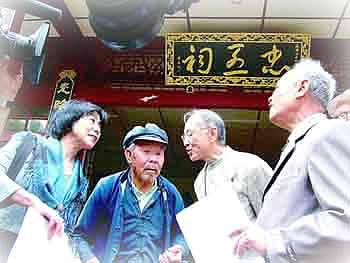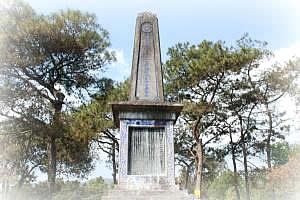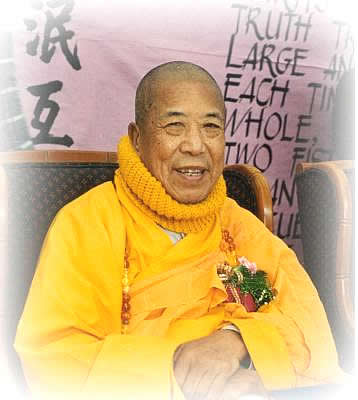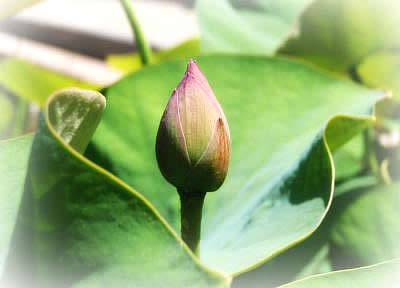 |
|
Thanksgiving
A talk given by Dr. Raymond Yeh on November 24, 2011
On Thanksgiving Day, my family celebrated my birthday, a few days ahead of time, so that I began my 75th year on earth.
----
As I look back over the last 55 years in this wonderful country, so much has changed—from the height of post-WWII prosperity and great spirit, to a country mired in economic difficulties with so many people having health problems. The opening phrase of a poem, at the beginning of the famous Chinese classic–“the stories of the three kingdoms” came to mind:
All the heroes of the past
Were washed away;
By the rolling waves of the eastward Long River!As I contemplated these words, tears of gratefulness rolled down my cheeks. This evening, I would like to take this opportunity to thank some of many wonderful people I have encountered during this fantastic journey.
Clearly my parents had the biggest influence on me. The one great gift they both gave me, other than bringing me to this world, is tenacity—the ability to go on despite seemingly impossible conditions. They embodied this spirit, both as a necessity imposed by the harsh conditions during the war and as an inborn character in their bones. Through their own embodiment, my parents taught me to never give up in whatever I would like to accomplish.
My mother was an extremely filial daughter, having taken care of my grandmother for over 30 years. In later years, she had exhibited tremendous forgiveness and compassion towards the last part of her life. But most important of all to her children, we know that she would give her last drop of blood in order to protect her children from harm.
While I always felt that my mother influenced me more, I began to realize in recent years of the gradual deepening influence of my father. When I was young, I remembered my father always told us to “prepare for anything we do”, and that he was always calm and non-judgmental. As I got to know more of him through the years, I came to appreciate the greatness in him. While clearly a war hero, and probably only one of a handful of Chinese generals who were always victorious during the war, according to CCTV, I was much more impressed with his inclusive heart. He has a nickname in the Chinese Army called “Grandma Yeh – the always victorious general” because he truly cared for his soldiers. He came from a very poor family and the only way out of poverty was to join the Army even though he always wanted to be an engineer. But he always remembered his days of desperation as a teenager and never forgot to help other poor children like him. During his Army career, he set up three schools for poor children.
When I visited the 1st Vocational High school in Tengchong in 2005, I felt the full force of his personality. I was so amazed that the people there erected one and only memorial tower, in the highest point in town, to honor him and his division, despite the many divisions that had poured into the city during the war.
In fact, everywhere I went, people remembered him, even taxi drivers in their 20’s, after more than 60 years. What I’ve come to realize is that “he really cared.” I was told of a story of an old Japanese gentleman recalling his meeting with my father, after the Chinese army retook Tengchong. He was brought to meet my father, as a captured Japanese soldier. He said; “The young general did not treat me as a prisoner of war at all. He told me to go home to rebuild Japan as my country needed me just like China needs him. I followed his advice and would like to honor my mentor from 60 years ago.”
I have learned from him two additional lessons, many years after he passed away:
- the true meaning of equality means that poverty is everyone’s responsibility;
- Flexibility of the mind -- so that one could tradeoff different perspectives and ‘connect the dots’ to arrive at something unexpected. I’ve come to realize that one must learn to leverage in order to achieve seemingly impossible task with little resource.
The first part of my life in this country was that of a student and I had the good fortune to have met Prof. David Muller as my thesis advisor, at the University of Illinois at Champion-Urbana. He was trained as a physicist and became famous in making fundamental contributions to both Mathematics and Computer Architecture and Theory. He mentored me in the most unusual way in that he never suggested what should be the topic of my Ph.D. thesis. However, he provided all the space and time to allow me to go into myself to discover what I must write. While he would give me the time for any questions during my search, he never provided a direct answer. He usually asked me a question as answer to my question. Recalling these meetings with him, I now understand that he forced me to be honest with myself as well as to develop a sense of fearlessness in order to be a true explorer of knowledge. In doing so, I was forced to smash open many of my self-limiting assumptions, like peeling an onion one layer at a time, until I saw myself totally naked. Although I changed the topic of my thesis several times, knowing each was not good enough, he never complained though he was paying me as a research assistant just to write my thesis.
It was painful to be his student as one was forced to go inside to find what’s there. But at the same time, it was a great joy when you walked through the dark tunnel and suddenly saw lights and beauty in front of you. While his teaching was mostly in silence with a smile or looking at me with his sparkling blue eyes, his behavior expressed to me that he was totally focused on bringing the best out of me by allowing me to find my own voice. To summarize, here are lessons I’ve learned from Prof. Muller:
- be intellectually honest so as not to waste time on things not coming from my inner voice;
- maintain a fearless spirit by learning to continually smash my own self-limiting assumptions as I explore;
- a powerful way to help another human being is just to be there for him or her.
When I left the academia to become an entrepreneur, Mr. Jack Trotter, an old time venture capitalist, was our first investor. One day, his assistant called informing me that Mr. Trotter would like to stop by for 30 minutes to understand what we were doing. Well, 7 or 8 minutes after I began my presentation, he raised his right hand and said: “Ray, I don’t understand a thing of what you talked about. However, I like you and want to know how much funding do you need?” He began to send me a check every month after the meeting with no agreement signed. After I spent more than 1 million dollars of his money, his assistant called one day and said: “Jack thinks we ought to formalize an agreement about his investment”. Jack not only helped me to launch my entrepreneurial career, but more importantly, he taught me the true meaning of trust.
Another great person I had the honor to meet was Dr. K.T. Li , the father of Taiwan’s information technology and the creator of Taiwan’s economic miracle. I met him in 1974 when he was the Minister of Finance of Taiwan and began a 30 year friendship. He turned down the opportunity to become the Premier in 1976 as he was concerned about how to achieve the 2nd economic development for Taiwan. When he was searching for a blue-print for Taiwan’s 2nd S-curve of economic development, he went around the world talking to top IT leaders in industry and academia. When he visited me at Maryland, I was so surprised that he came by himself and took careful notes on what I said. From interactions with him, I’ve learned how a person could simultaneously be aware of both the “macro view” as well as detailed “micro view.” More specifically, he taught me how to keep a keen awareness of both the forest as well as individual trees in order to make better decision by “separating what is important in life from what isn’t.” He was another example of the great people I met who had no ego.
It turns out that one of the most influential persons in my life is my wife—my life long partner, best friend, and teacher. Since our first encounter, it has been 50 years. What Priscilla taught me was her natural born attitude for service in that her happiness is derived from making other people happy. She always mentioned that in service, her reward is instantaneous. She does not need any awards or other people’s praise. The lessons of service from her, over many years, helped me to gradually reduce the size of my ego. As a consequence, we enjoyed an extraordinary level of wellbeing because being of service leads to:
- Better relationships—we can hear more deeply, not only of people’s words, but also the emotion behind the words;
- Better physical health—as our individual mind is more relaxed, it causes less agitation to our body; and
- A higher degree of joy and inner peace—because the rewards are always there and instant.
Most importantly, I am grateful to the Venerable Master for establishing CTTB.
As part of this wonderful community, I was indeed fortunate to be nourished by vows of Buddhas and Bodhisavattas through the multitude of Dharma events here. I have learned that Bodhisavattas always practice deep inclusion, covering past, present, and future as well as the unlimited space of all the 10 directions, which allows them to “see all beings with compassionate eyes”. I would like to take this opportunity to thank all of you, the people in CTTB who had helped to polish me over the last eight years. Because of you, I have changed and made some progress on cultivation. Perhaps the following story can express some of the changes of your collective influence on me.
We think there are a couple of field mice in our cottage, although we usually see only one at a time. One night, a few weeks ago, I saw a mouse crawling up the bed towards me, during a dream. As I watched, he crawled right into my right hand, which was lying open. I quickly caught the mouse and jumped up and went to the back door intending to throw him out as far as I could. When I opened the backdoor, the chill air made me almost tremble. I thought: “Well, we have coexisted with him for some time now, and it would not be right to throw him out on a very cold night.” So, I let him go inside of the cottage. Then, I woke up. I believe my mind is suppler now by being here with you.
As I look back into this wonderful journey, I recall a poem by a monk during the Ming dynasty, when asked where his home was. He said:
“Home is east of eastern end of Ming Mountain,
Where red flowers blossom year round.
While I am not among the blooms now,
The bloomy flowers continue to flourish where they have always been.”CTTB had been a most wonderful sanctuary for me to distill the lessons of this life; I am readying myself to go home which perhaps can be expressed using the format above as:
“Home is west of the western end of Saha world,
Where overlapping Lotus flowers blossom year round.
While I am not among the blooms now,
The fragrance of a purple bud is ready to welcome the traveler home!”Amitofo!





